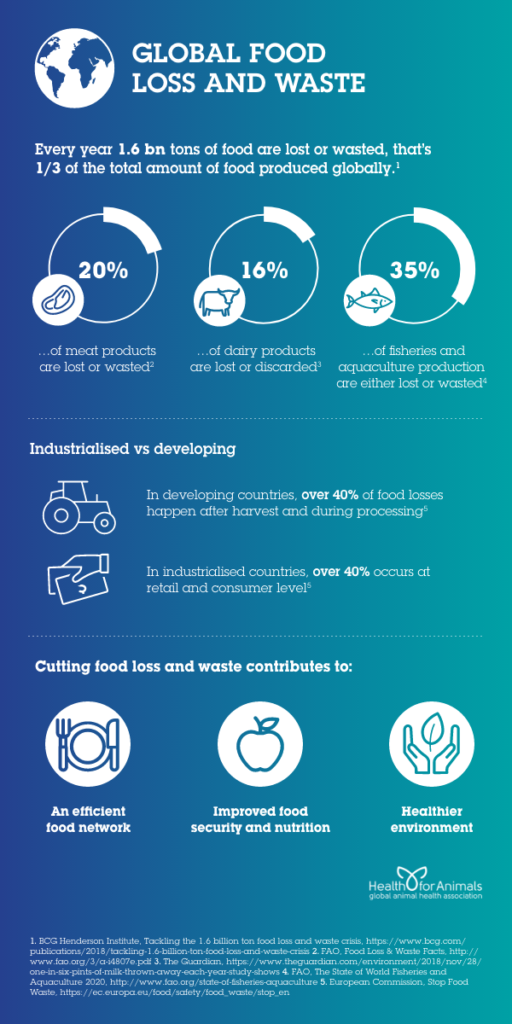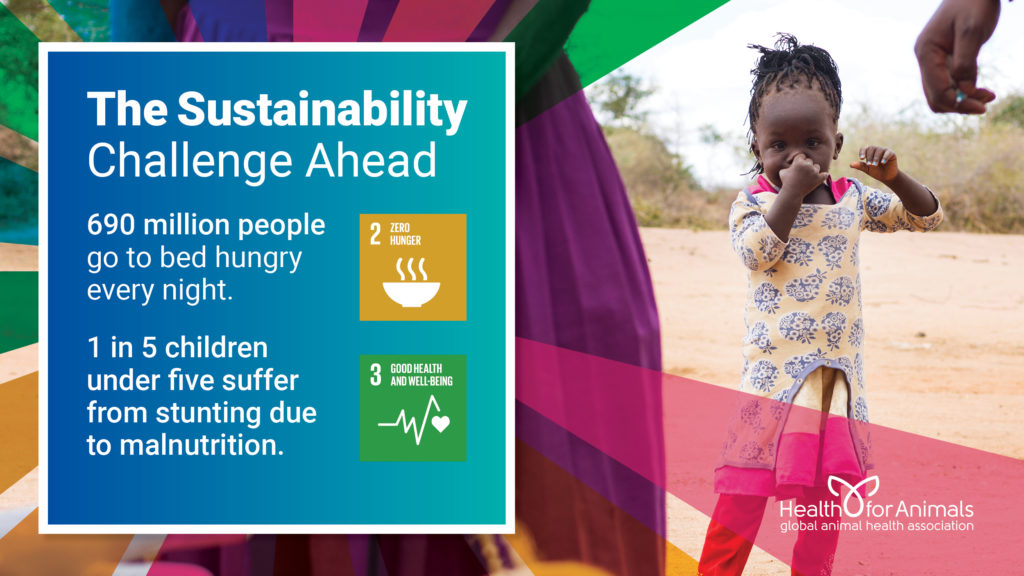Food security
The World Food Programme describes people as food secure when they have “availability and access at all times to sufficient, safe, nutritious food to maintain a healthy and active life.”
Animal medicines protect the food security of millions of people across the world by enabling farmers to deliver food efficiently, safely and affordably. Vaccinating animals against disease, while quickly diagnosing and treating illness when it strikes allows farmers to continue supplying these essentials.
There’s still a huge amount of work to do though to provide the many communities who simply don’t get enough of this basic nourishment. The world has reduced the number of hungry people by over two hundred million over the past two decades, but the United Nations Food and Agriculture Organization estimates that a staggering 820 million people do not have enough to eat.
And the pressures on our food supply will only increase. A growing population and a flourishing middle class mean protein production needs to double by 2050 to feed 1/3rd more people than we have today.
Protecting livestock and preventing them falling out of the food chain through disease will continue to be of paramount importance as we strive to feed a growing population.



